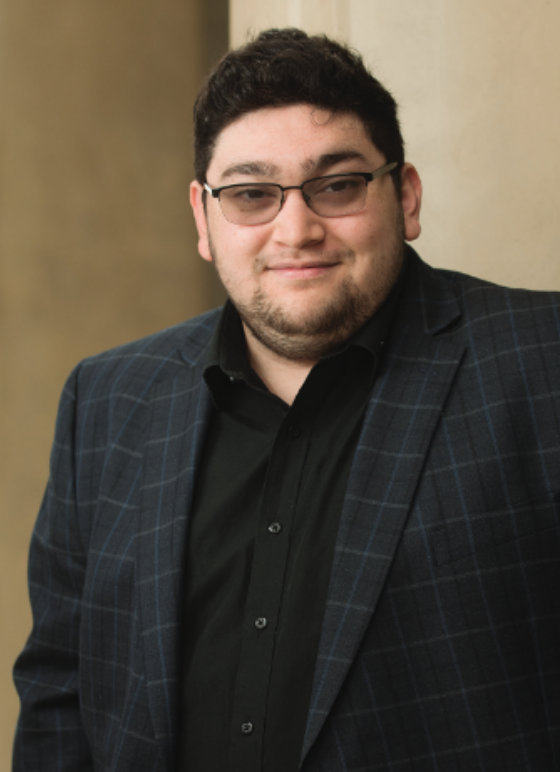Abraham Sculley became aware of his mental health during his first year of college. As a first-generation college student, he felt a lot of pressure to succeed academically. For him, going to college was about more than getting a degree. It was about creating a path and blueprint for his siblings to follow and honoring his parents’ sacrifices. During his first year, he was a full-time student, worked full-time hours, and was committed to getting A’s in all his classes. He planned to graduate in precisely four years, land a high-paying job, and make enough money to help his family financially. Nowhere in his plan did he consider struggling with a mental health condition, and he was unequipped to navigate any mental health challenges.
Being raised by Jamaican immigrant parents taught him to work hard and not make excuses. But, because they never had conversations about mental health, he didn’t know how to care for his mental health or seek help. The stress and pressure he felt as a student quickly turned that first year of college into one of the most challenging times of his life. He went from being an optimistic student to losing all motivation. He stopped going to classes, wasn’t showing up to work regularly, and physically couldn’t get out of bed most days. He knew something was off but had no idea what was going on. It wasn’t until he had a conversation with a friend who recognized that he was off and decided to reach out.
His friend created a safe space for him to share what he was experiencing. Ultimately, she validated his thoughts and feelings. She encouraged him to seek help, so he started going to therapy at the counseling center on campus. There, he was diagnosed with major depressive disorder and began his treatment and recovery journey. This experience helped him realize the importance of prioritizing his mental health and sparked a desire to advocate for mental health awareness on his campus, in his community, and for his family.

Even though Abraham struggled with depression, the experience humbled him. As a mental health advocate, he realized that many young people are suffering in silence, like he was, because of their lack of knowledge and awareness of mental health education and resources. So, he decided to change that by sharing his story and educating others about mental health, common misconceptions about mental illness, and the resources available. Abraham said, “Everyone is going through something. We can support each other through kindness and compassion and make the world a better place one interaction at a time.”
In 2020, Abraham founded Speaks 2 Inspire with the mission to eradicate stigma, support the well-being of young adults, and make mental health resources accessible. Today, they partner with universities, colleges, and schools to implement mental health programs that increase student engagement, retention, and graduation rates! When asked how we could change how we approach mental health, he shared that mental health needs to be part of our normal conversations and increase awareness and education in communities where these conversations are not prevalent. He hopes that he can make mental health education a priority in our schools and communities so that we learn tools to help us successfully navigate life challenges.

As someone who is a proponent of sharing your story, his advice is to identify the medium you feel safe with. For him, public speaking felt right because God gave him the gift of communication, but this may not be the case for other people. Consider writing, singing, or dancing–maybe even painting, poetry, videoing, or podcasting. Find what works for you, and share your story. Abraham is the author of “Unlearn The Lies: A Guide to Reshaping the Way We Think about Depression.” He shares that writing was a process of self-discovery. At first, it wasn’t easy because he had to revisit difficult moments in his life, sit with those emotions, and identify the lessons he learned so that he could share his story from a place of vulnerability. He knew that by being honest about his mental health story, he could help others feel seen and understood and give them hope that if he could overcome, so could they.
Abraham shares that we need to be compassionate with ourselves during the recovery process for anyone struggling with their mental health. As Noam Shpancer says, “mental health is not a destination but a process. It’s about how you drive, not where you’re going.” You got this! Lastly, he would like others to know that mental health is a state of well-being, not just the absence of mental illness. Taking care of our mental health is an opportunity to experience wellness, personal growth, and fulfillment.





















